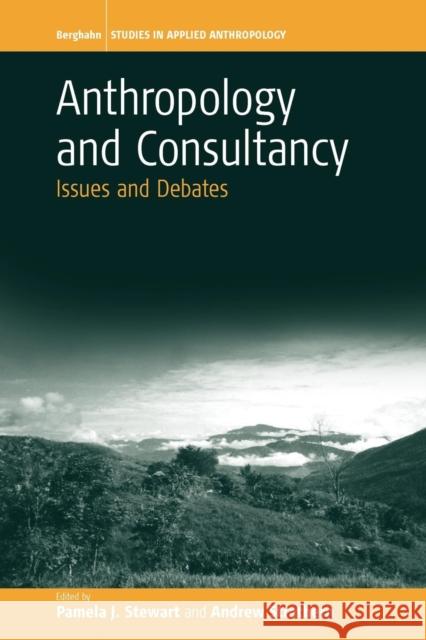Anthropology and Consultancy: Issues and Debates » książka
Anthropology and Consultancy: Issues and Debates
ISBN-13: 9781571815521 / Angielski / Miękka / 2004 / 162 str.
"I do recommend this volume to anthropologists. This collection would be appropriate for training social or cultural anthropologists . . . Several of these cases are well written, insightful, and instructive." - Journal of Anthropological Research More and more, anthropologists are recruited as consultants by government departments, companies or as observers of development processes in their field areas generally. Although these roles can be very gratifying, they can create ambiguous situations for the anthropologists who find that new pressures and responsibilities are placed upon them for which their training did not prepare them. This volume explores some of the problems, opportunities, issues, debates, and dilemmas surrounding these roles. The geographic focus of the studies is Papua New Guinea, but the topic and its importance apply widely through the world, for example, Africa, South America, Australia, and the Pacific in general, as well as in relation to indigenous groups in Canada and elsewhere. All the authors have first-hand experience and they address these new pressures and responsibilities of anthropological research. The book's chapters are written in a way that combines scholarship with a style accessible to general readers. Pamela Stewart is Research Associate at the University of Pittsburgh. She works on human identities and life histories, farming practices and national identity, patient/physician communication, religious change and sorcery, forms of violence and its impact. Her areas of interest include the U.S., Europe, and Papua New Guinea. Andrew J. Strathern W. Mellon Professor at the University ofPittsburgh. His interests include the analysis of political and economic systems in small-scale societies, kinship theories, social change, religion, symbolism, ethnicity, legal anthropology, conflict and violence, the anthropology of the body, and the cross-cultural study of medical systems.
"I do recommend this volume to anthropologists. This collection would be appropriate for training social or cultural anthropologists . . . Several of these cases are well written, insightful, and instructive." · Journal of Anthropological ResearchMore and more, anthropologists are recruited as consultants by government departments, companies or as observers of development processes in their field areas generally. Although these roles can be very gratifying, they can create ambiguous situations for the anthropologists who find that new pressures and responsibilities are placed upon them for which their training did not prepare them. This volume explores some of the problems, opportunities, issues, debates, and dilemmas surrounding these roles. The geographic focus of the studies is Papua New Guinea, but the topic and its importance apply widely through the world, for example, Africa, South America, Australia, and the Pacific in general, as well as in relation to indigenous groups in Canada and elsewhere. All the authors have first-hand experience and they address these new pressures and responsibilities of anthropological research. The books chapters are written in a way that combines scholarship with a style accessible to general readers.Pamela Stewart is Research Associate at the University of Pittsburgh. She works on human identities and life histories, farming practices and national identity, patient/physician communication, religious change and sorcery, forms of violence and its impact. Her areas of interest include the U.S., Europe, and Papua New Guinea.Andrew J. Strathern W. Mellon Professor at the University ofPittsburgh. His interests include the analysis of political and economic systems in small-scale societies, kinship theories, social change, religion,symbolism, ethnicity, legal anthropology, conflict and violence, the anthropology of the body, and the cross-cultural study of medical systems.











